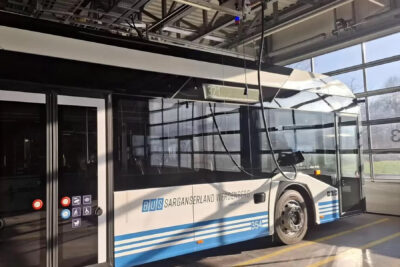The UK brings the ICE phase-out back on track
British news outlet Fleet News was the first to report on the issue, saying that the plan was not part of the King’s Speech, which traditionally outlines the government’s legislative plan. Nonetheless, the Department for Transport (DfT) confirmed to Fleet News that it will provide further details at a later date.
The article points out that the DfT has so far only referred to “cars,” making it uncertain whether or not the new deadline could also apply to vans. It also remains to be seen how the shift in policy will affect PHEVs and HEV. The initial legislation stated that hybrids that can drive “significant distance with no carbon coming out of the tailpipe” would be allowed until 2035.
Last September, former UK Prime Minister Rishi Sunak (Tories) pushed back a planned combustion engine phase-out date from 2030 to 2035, citing the high cost for families and small businesses. However, just a few days later, the government also announced that it would stick to previously defined EV targets for the coming years. The so-called ZEV mandate scheme says that since January of this year, locally-emission-free cars must make up at least 22 per cent of a manufacturer’s total sales. For vans, there is a target of ten per cent. The quota will increase to 80 per cent for cars and 70 per cent for new vans by 2030. By 2035, all new vehicles sold must be electric.
Pushing back the phase-out date while upholding the ZEV mandates drew criticism from carmakers. At the time, an unnamed carmaker told the BBC that “forcing firms to hit the target on electric vehicle sales, while pushing back the ban on new petrol and diesel cars, would make it harder for firms to sell the electric ones.”
The Labour Party, which has now come to power in the UK, had already announced during the election campaign that it would restore the initial deadline of 2030. So the move does not come as a big surprise.
“We congratulate Sir Keir Starmer and the Labour Party on their election success. The new government’s commitment to an industrial strategy and its already published Automotive Sector Plan can boost manufacturing competitiveness, enhance trade relations and support consumers,” said Mike Hawes, SMMT Chief Executive following the election. “The industry is fundamental to the achievement of net zero which, with the right conditions, will deliver the growth the economy needs. We now look to continue our productive partnership with government to ensure the long-term success of the sector and all those who depend on it for their mobility, services and livelihoods.”
The Society of Motor Manufacturers & Traders (SMMT), which supports and promotes the interests of the UK automotive industry, recently reported that in June, battery-electric cars recorded a market share of 19 per cent, the highest monthly market share in the UK since December 2023. And compared to the same month last year, BEV sales rose by 7.4 per cent.
fleetnews.co.uk, smmt.co.uk (sales figures UK)





0 Comments